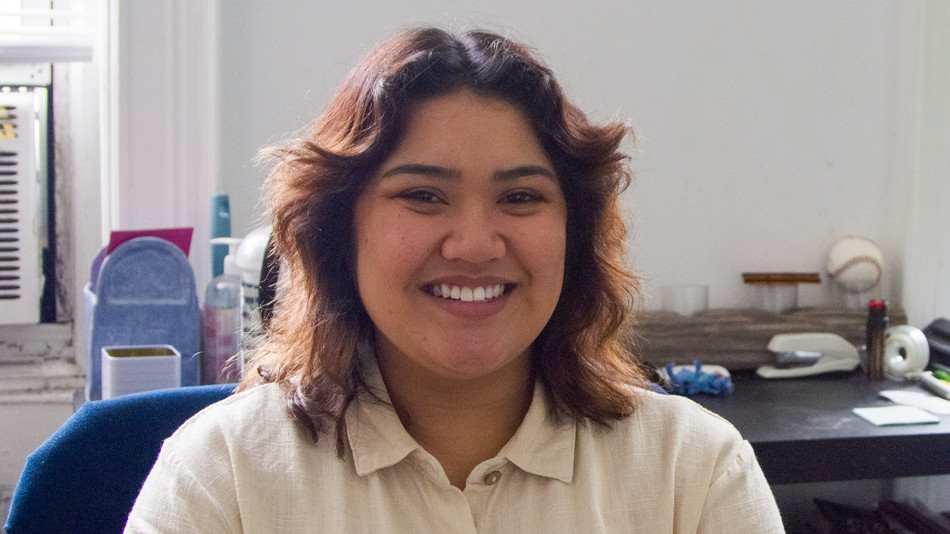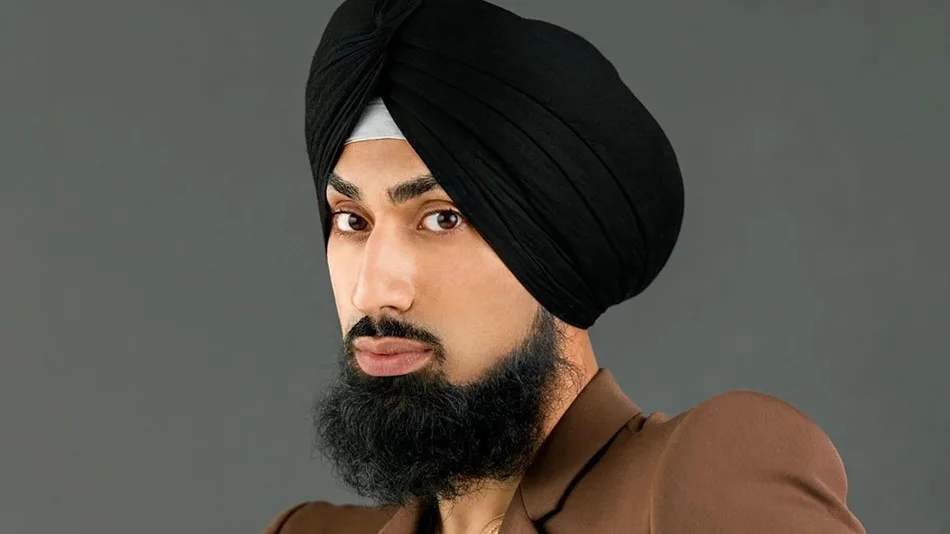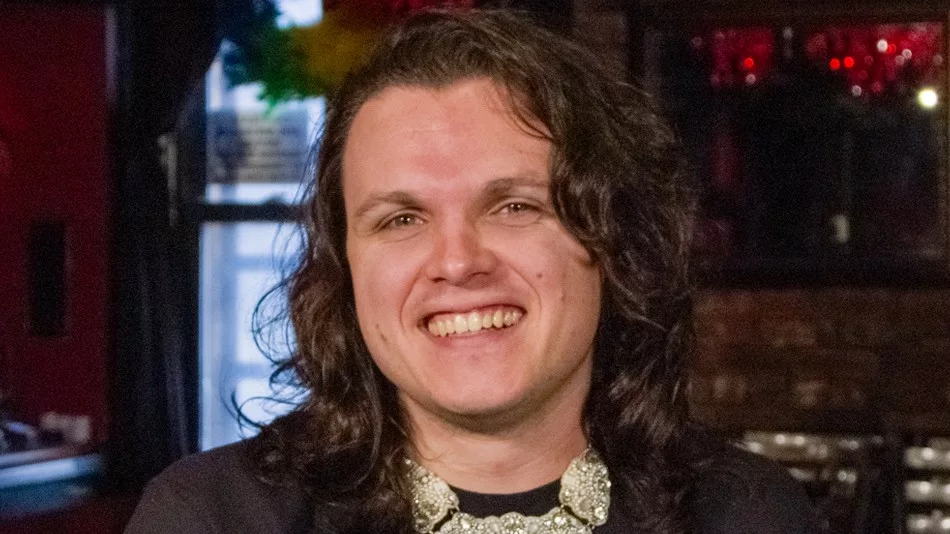Hi, I’m Grey Pierce. I’m from Rehrersburg, Pennsylvania.
So I was in my last quarter of my freshman year at Oberlin College and I was taking my exams. Since I had been living out as a trans man at that point for several months at college and with my rugby team friends and everyone at college knew, I thought it was time to tell my parents. So I drafted a letter on the computer, an email, and I remember sending it to my parents, one to my mother and one to my father.
They both had visited me at college and I had to tell my friends, you know, make sure you use the right, you know, she/her pronouns, not he/him pronouns when they come or, you know, make sure you use my, you know, don’t call me Grey, call me by my dead name. And so – in front of my parents so they don’t pick up on anything, ‘cause I was really nervous about how they would react.
Neither of them called me and neither of them acknowledged my message, but my mom came to pick me up and we had a conversation about it on the way home and a little bit more when we got home.
And my dad kind of told me on the phone one day, kind of like, “You know, I’ve… I’ve seen your message. I’m… I’m still thinking about it. I’m not really sure what I’m going to say at this point, but I just need some more time to process.” And my dad’s a minister, so he has a lot of thoughts and he wants to meet you kind of where you’re at, but sometimes it just takes them a little time to process, to think about the empathetic response.
So both of my parents at this point, I had visited my mom and dad over the course of the summer. My dad kind of said, “You know, you’ve mentioned in your letter that you wanted to do medical transition. Kind of, what does that involve?”
And I said, “Well, that involves, you know, for me, probably starting with hormones, in particular being on testosterone.”
And he said, “You know, that can have… effects.”
And I said, “I know. Those are the things that I’m interested in.”
He said, “You know, those might not be reversible.” And he said, “Why don’t you give it a few years? Think about and make sure this is really what you want.” And I think the thing that he didn’t understand at the time was that I had waited so long to send this… this message to him. I had been thinking about this since high school.
And I was, you know, at college near Cleveland. The closest place that I trusted to go was in Chicago. And I had tried to figure out a way to get there. And my dad happened to plan a vacation to Chicago, where he was from. So I saw this as a perfect opportunity to start and see a physician there in Chicago at Howard Brown, which is one of the key places my friends were going for their care as well.
And I said, “Dad, I actually have this appointment at Howard Brown. You know that letter I sent you? I really want to start my medical transition now. And I made this appointment weeks ago. And I knew I was going to be here. And I really want to take advantage of being in Chicago. And I don’t want to drive out by myself and so I really want to go.”
And he said, “Well, you can’t go by yourself.”
And he said… then it came out the real reason why he didn’t necessarily want me to go, which was, “I don’t think you’re quite old enough yet to start this process. I still have hesitations about it.”
To which my response was, “You know, I’m very glad that you have hesitations about it, but I’ve thought about this a long time, and this is really what I want to go.” And so when I made it very clear that I wasn’t going to cancel my appointment, we ended up taking the whole family. That included my dad, my younger brother and younger sister who are both still in high school at the time. Traipsing into Howard Brown clinic, having to go through the check-in process and then sitting the four of us in this is a very small kind of dingy, no window, dark waiting room waiting for… to go back to talk to my physician. And there I am 18 years old, very embarrassed to have my whole family in tow behind me.
I went into my appointment. I, of course, really enjoyed – I saw a PA there. I got on track to everything, made an appointment later for the summer to come back and start my treatment. I said, you know, thank you to my family for letting me… for letting me do this. But I think a lot of it just went unspoken and there was this kind of, like, awkwardness and tension about it, where we both acknowledged, we all acknowledged that we had gone there, but it wasn’t like, Remember that time when we all went to Howard Brown?
So a couple months later, school’s about to start up. I’m going to be a sophomore. My partner at the time had a house. We get her settled in. We see all of her friends, we celebrate, everyone’s like, Good luck! and they wave us goodbye. We wake up extremely early on my half birthday to drive out to Chicago for my second appointment where I’m going to get my T, I’m going to learn how to do it, going to get my prescription. I’m really excited. I’m really nervous. I get my first shot, my leg’s a little bit sore for the rest of the car ride home. And we return probably 9 or 10 o’clock at night.
About a year later, I was again with my dad and my dad – I was staying with my dad for the summer, and I saw on his kitchen counter, a book about “Her Way” or something like that. It’s like, What is this? It was a book written from the point of view of a trans woman, kind of like what her journey was through transitioning and why she did it and, like, what it felt and kind of what her relationship with her family was.
After seeing that I felt a little bit more open and able to talk to him about some of the things that I was going through. In particular, having my driver’s license changed. And I asked my dad, “Hey, you know, this is something I’m going to do. I’m… would like to go do it.”
And he said, “You know what? I’ll go with you.”
And I said, “Okay.”
And he said, he’s like, “Would you like me to wear my collar?”
And I said, “Okay.”
And so my dad gets dressed in his black shirt, black pants, belt, and then he puts his… his collar on. So he… he’s very much, like, dressed as… as he’s going to go to church that day. And he knew he could be there as an advocate. And he had… he had clearly made progress at that point.
I think I got it on the same day. And so I was really, really stoked. My dad of course, was like, you know, “I’m very happy for you.” But after that, there was no kind of reflection on that… that day or that moment.
In addition to going with me to get my driver’s license, when I had my name changed – this was my… about two years later, I was about to go off to grad school. I was there and he came with me and he represented me in court. He was able to stand up and he said, you know, “I know my son is really, you know, has made… this has been a journey for him. I’m so proud of him. And this is something that I’m a hundred percent supportive of.”
So he, he came to me again, dressed in his collar and his clerical uniform, and helped me through the process of representing myself in court and having to stand before the judge and saying, “I would like to legally change my name. Here’s why.”
It’s somewhere in the Franklin county court system, my dad is standing up and saying, you know, “I support my son.” And that was one of the things that he hadn’t been able to say before that, you know, that, you know, my eldest child, he would say. And so to hear him say, my… my son… “I support him doing this.” and being there in that active role was a huge turnaround from where we had started from when he got the letter three years prior.
And I don’t think we ever have sat down and said, what is the meaning to you for this? But I think I know that my dad is in my corner. And that no matter what it might be, that there’s an extreme love, fatherly love, that comes through on his part, that he is there for his kids and that he will support them the best way he can, even if he doesn’t fully comprehend the struggle or the hardship that I was going through at the time.
Sometimes there’s a journey you have to go through. And it’s not that you’re going to lose your housing and it’s not like you’re going to be estranged from your family, but there are going to be these struggles. And that is something I think that it’s very important for other people to know too, that, you know, it can through time even be a better relationship than you had previously, if you’re able to be open and honest and have those conversations and experiences with your family.








Share